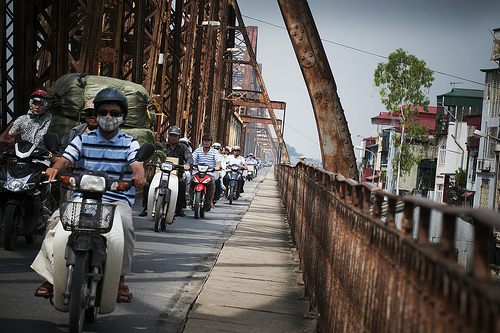Related

Feb 13,2013
The City as Unit of Analysis
by
Paul Romer
more on:
cua
Treating the city as a distinct unit of analysis inevitably raises questions about how the city is similar to — and different from — the business. The first question is whether there is any fundamental difference at all. A common way to pose this question runs something like this:
Analogies can raise useful questions, but answers depend on evidence — and in this case, the evidence suggests that giving citizens the ability to “vote with their feet” will not discipline the leaders of a community. More fundamentally, the evidence shows that while the opportunity to vote is one difference between public and private systems of city governance, it is not the most significant one. In private systems, it is the lack of a separation of powers between an executive and an independent judiciary that is the more troubling weakness.
Deterring crime is one of the essential challenges for any large city. All of the evidence suggests that deterrence on this scale requires people to investigate crimes, and people to punish those who commit them. When private organizations carry out these functions, the decisions about which offenses to prosecute, and — crucially — how to determine whether a person is guilty of an offense, are made by the same people who exert executive authority. The actions of these private organizations give us a useful — and troubling — window into what can happen in the absence of an independent judiciary.
Historically, many of the private systems with legal powers were religious organizations that could uncover and adjudicate offenses committed by their members. Galileo was famously tried by the Catholic Church. The wonderful recent history The Chosen Few, by Maristella Botticini and Zvi Eckstein, reminds us that Jews also had independent legal systems. It reprints the charter of 1244 in which Duke Frederick II of Austria defined the separate legal rights of Jews and outlined how cases that involved both Christians and Jews would be adjudicated.
We see the legacy of these arrangements today. Catholic officials in the United States challenge provisions of the new health care law that impinges on powers they think they should remain in the realm of moral behavior. A leading ultra-Orthodox organization recently asserted that observant Jews should not report allegations of sexual misconduct to the police unless permitted to do so by a rabbi.
In the last few centuries, universities have also acquired independent police powers. In the United States, many universities have employees who do such things as make arrests, investigate violations of community rules, or decide how these violations should be handled.
The evidence on how religious groups and universities have handled cases of sexual assault shows that they have routinely failed to provide equal protection to all members of their communities. Because of an obvious conflict of interest, universities with lucrative sports programs are notoriously hesitant to pursue charges against student athletes accused of sexual assault. A comparable conflict of interest seems to have encouraged the Catholic church and at least some leaders of the Hasidic community to deal quietly and gently with officials in their organizations who were accused of sexual assault on the community’s most vulnerable members, its children.
I am not aware of anyone who is familiar with the evidence in these cases who thinks that the freedom to choose a different community is an adequate mechanism for holding accountable the officials who run them. Could anyone reasonably argue that the threat of student transfers caused officials at Penn State to vigilantly enforce rules against sexual assault?
However, neither am I aware of anyone who has looked at the details of these cases and thinks that giving the vote to members of the community would have helped. The surge of student and alumni support for officials at Penn State that followed the initial disclosures in the Sandusky case should give pause to anyone who thinks that local elections are the key to ensuring equal protection under the law. Democracy is not good at protecting the rights of minorities — and after the fact, crime victims are always far outnumbered by people who would rather pretend nothing ever happened.
Humans have never found a mechanism for protecting the legal rights of the few that is as effective as a judicial system that is outside of the control of executive authorities. Of course, like universities and religious groups, some public entities also lack an independent judiciary — or have one on paper that fails to act independently. In Louisiana, local prosecutors and courts tolerated criminal activity by police in New Orleans. The crimes of the police were addressed only after federal prosecutors and federal courts stepped in and took jurisdiction of cases involving the police.
Despite the failures of some public systems of governance, there are many other public systems with workably independent judicial institutions. I’m still waiting for someone to point to even one such system in the private sector or any other private arrangement that provides an equivalent level of protection.
Any proponent of cities run entirely by private entities, therefore, must bear the burden of proof. What evidence is there to support the claim that private entities are capable of avoiding the inherent conflict that executives face between their commitment to the enforcement of community rules in a way that applies equally to all members — and the many other objectives they seek to achieve?
Please fill out the information below to receive our e-newsletter(s).
*Indicates required.